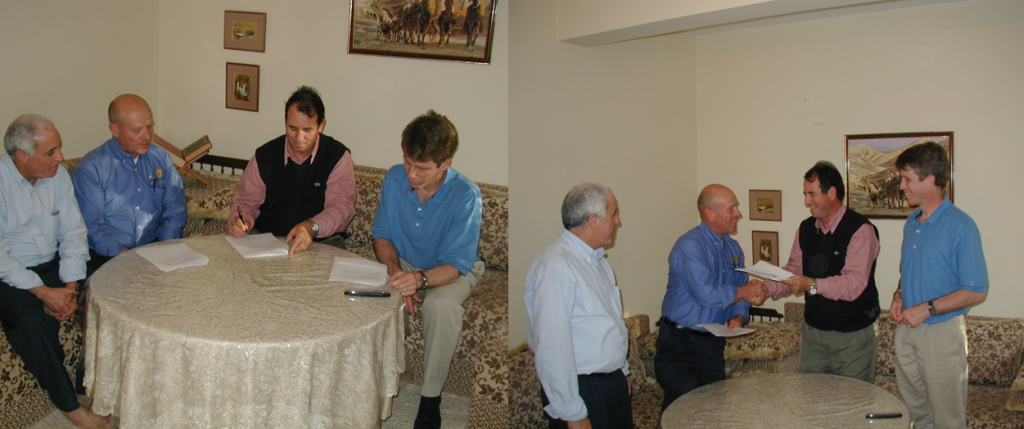Fostering meaningful connections with foreign officials, importers and other key stakeholders along the agricultural export system is one of the central pillars of the U.S. Grains Council’s (USGC’s) mission. Memorandums of understanding (MOUs) are a vital part of pivoting those relationships into tangible results for U.S. producers, but what does an MOU really do?
An MOU is a non-binding agreement between two or more parties, signifying their intention to cooperate on a particular issue or for one party to offer assistance to another. It can spell out a specific plan of action and desired outcome, or just act as a broader indication of people and organizations coming together in the name of a common objective.
“MOUs are very important because they simultaneously represent the inroads we’ve already made into a market and create a vision for progress in the future,” said Ryan LeGrand, Council president and CEO. “Signing these memorandums sends a positive, reassuring message that the Council is here to help for the long term.”
For the Council, MOUs are a result of its partnerships with overseas customers and end-users that can significantly increase market access or market share for U.S. products in a given region and demonstrates a dedication to continuing those efforts for the duration of the agreement and beyond.
“MOUs are key to our work because they provide a system to formalize commitments with our strategic partners,” said Heidi Bringenberg, USGC director in Mexico. “It is a friendly approach to establish clear and fair working boundaries that align with the Council’s standards and goals.”
In many cases, the benefits of an MOU extend past its original parameters. For example, the Council signed an agreement with a dairy cooperative in Morocco to provide three years of management and engineering support for a new feedlot there in 2003. The Council is still working with that same group today without an MOU as a result of the trust and understanding built over the decades to improve food security and industry best practices while increasing market share for U.S. products, demonstrating the long-lasting impact that an MOU can have for signees and the surrounding industry.
“One of the Council’s main goals is to build relationships, and MOUs are a great representation of that. They are signed in good faith between parties that trust each other’s mission to advance global agricultural trade and development,” said Caleb Wurth, USGC regional director in Southeast Asia and Oceania. “MOUs are vessels for significant progress in a market where both parties hold each other accountable, and they are a beacon of cooperation in the agricultural industry.”
About The U.S. Grains Council
The U.S. Grains Council develops export markets for U.S. barley, corn, sorghum and related products including distiller’s dried grains with solubles (DDGS) and ethanol. With full-time presence in 28 locations, the Council operates programs in more than 50 countries and the European Union. The Council believes exports are vital to global economic development and to U.S. agriculture’s profitability. Detailed information about the Council and its programs is online at www.grains.org.

